ANIMALS
25 Fascinating Facts About Elephants
Published
8 months agoon
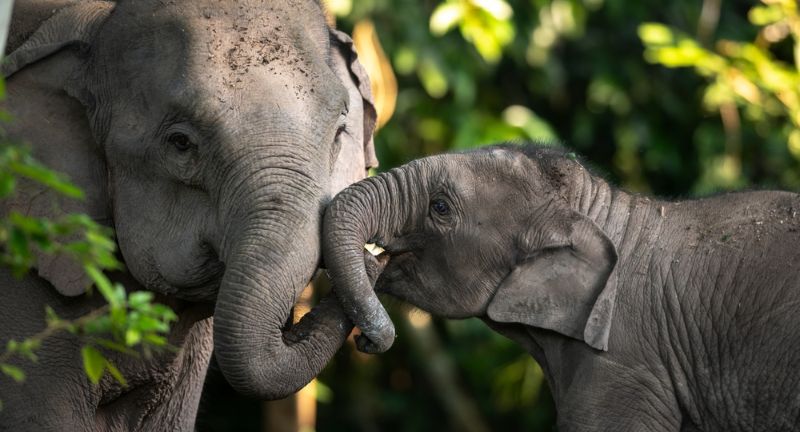
Shutterstock
Elephants are among the most fascinating and beloved animals on the planet. Their incredible intelligence, deep emotional bonds, and impressive physical abilities make them stand out in the animal kingdom. From their gentle nature to their complex social structures, elephants captivate our hearts and minds. This article delves into 25 remarkable aspects of these majestic giants that will deepen your appreciation for them. Prepare to be amazed by the many reasons to love elephants even more.
Intelligent Giants

Shutterstock
Elephants have large brains and are considered one of the most intelligent animals. They have excellent problem-solving skills and exhibit behaviors that suggest deep emotional intelligence. Studies have shown that they can recognize themselves in mirrors, a sign of self-awareness. Their ability to learn, adapt, and show insight is truly remarkable.
Strong Social Bonds
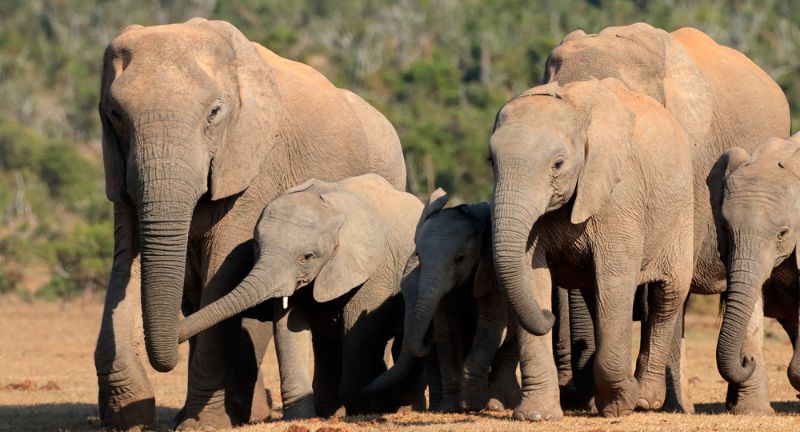
Shutterstock
Elephants form close-knit family groups, often led by a matriarch. These bonds are crucial for their survival and well-being. Family members show deep affection and loyalty to each other, helping care for calves and defending the group from threats. Their social structure is complex and cooperative, much like human families.
Long Memories
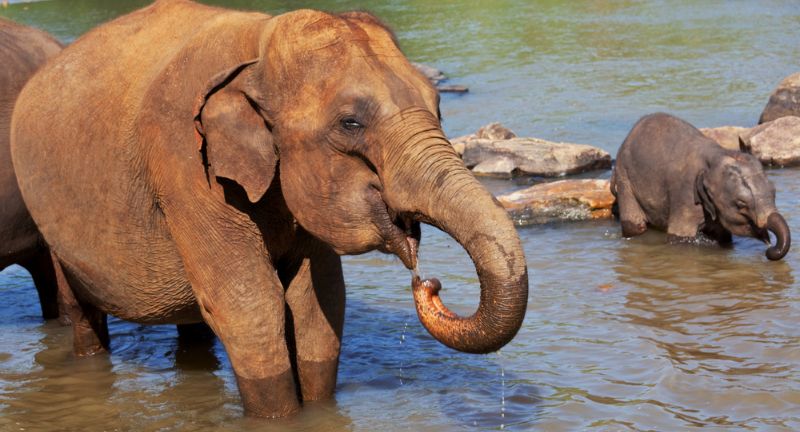
Shutterstock
The saying “an elephant never forgets” has some truth to it. Elephants have incredible memories, remembering locations, individuals, and even water sources over many years. This memory is essential for their survival, especially in harsh environments. Their ability to recall complex social and environmental information is extraordinary.
Empathy and Compassion
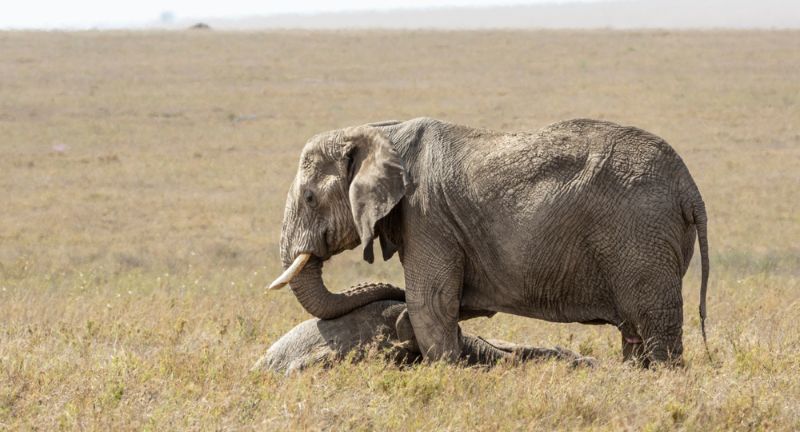
Shutterstock
Elephants show remarkable empathy and compassion towards each other. They comfort distressed companions and have been observed mourning their dead. This emotional depth includes helping injured members and showing kindness to other species. Their social interactions are filled with gentle touches, hugs, and supportive behavior.
Gentle Giants
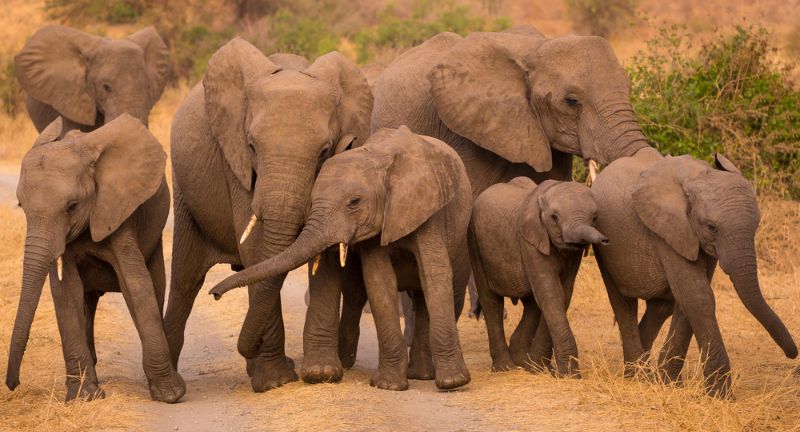
Shutterstock
Elephants are known for their gentle nature despite their size. They can be incredibly careful and tender, especially around young calves. Their gentle behavior extends to interactions with humans and other animals. Their slow, deliberate movements reveal their innate sense of caution and care.
Communication Skills

Shutterstock
Elephants communicate using a variety of sounds, including rumbles, trumpets, and even infrasound that can travel long distances. Their vocalizations convey emotions, warnings, and social information. They also use body language, touch, and chemical signals to interact. This sophisticated communication system is vital for maintaining social bonds and coordinating group activities.
Remarkable Trunks
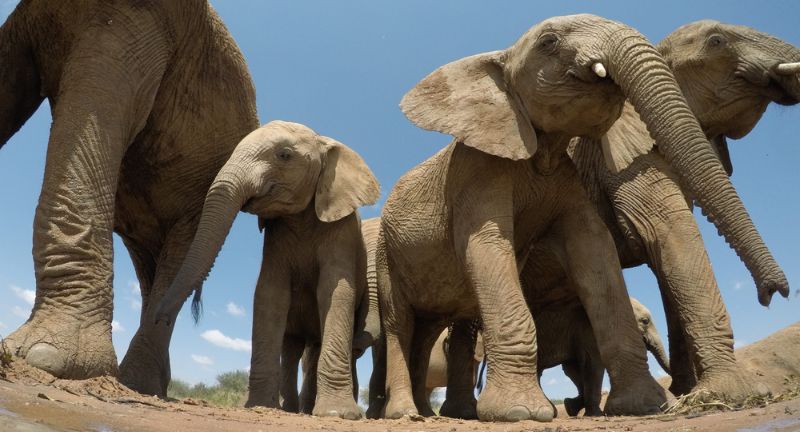
Shutterstock
An elephant’s trunk is a versatile tool used for drinking, feeding, social interaction, and even as a snorkel when swimming. It contains over 40,000 muscles, allowing for incredible precision and strength. Elephants can use their trunks to pick up tiny objects or uproot large trees. This amazing appendage is essential for their survival and daily activities.
Emotional Depth
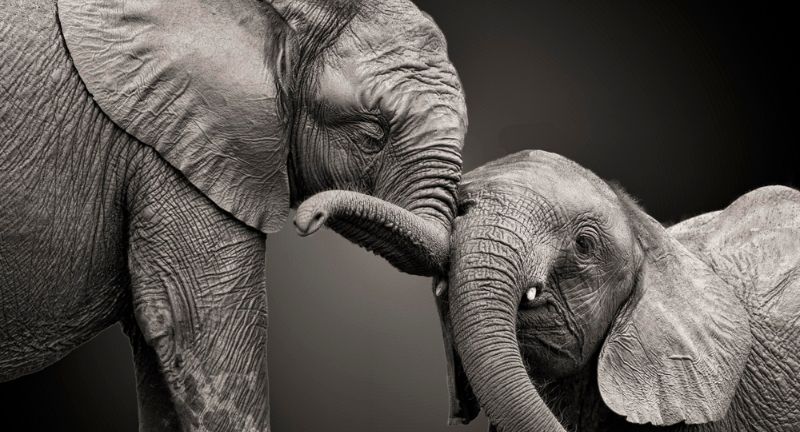
Shutterstock
Elephants experience a range of emotions similar to humans, including joy, grief, and even post-traumatic stress. They celebrate births with excitement and mourn the loss of their kin with somber rituals. Their emotional lives are complex, and they can exhibit signs of long-term stress or relief. Understanding their emotions helps us appreciate their sentient nature.
Incredible Strength
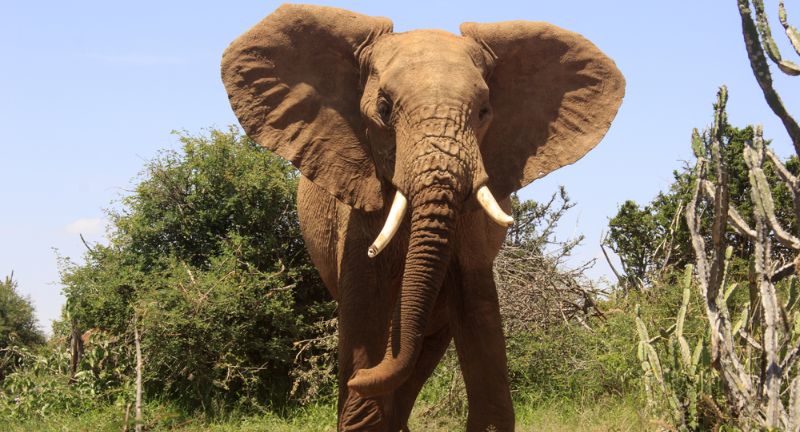
Shutterstock
Elephants are immensely strong, capable of easily carrying logs, uprooting trees, and lifting heavy objects. This strength is physical and symbolic of their resilience and adaptability. Their muscular bodies and sturdy limbs allow them to navigate various terrains and perform remarkable feats. Watching an elephant at work is a testament to their power and grace.
Water Lovers
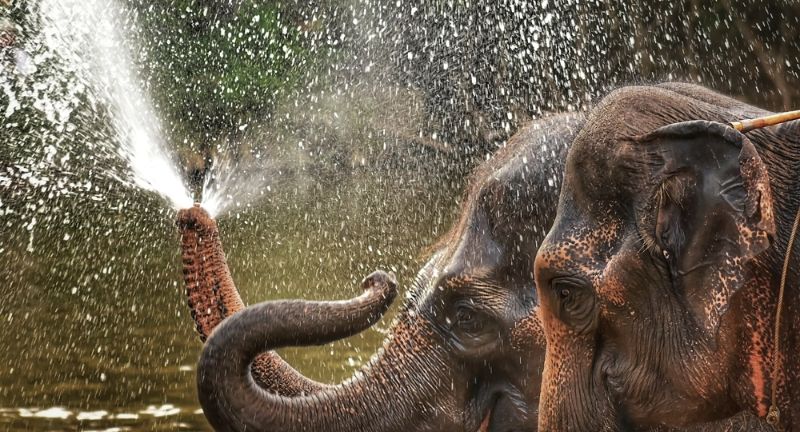
Shutterstock
Elephants love to swim and are excellent swimmers. They enjoy playing and bathing in water, often squirting water over themselves and others. This behavior is not only fun but also helps keep their skin cool and clean. Watching elephants frolic in water is a joy, revealing their playful and carefree side.
Caring Mothers
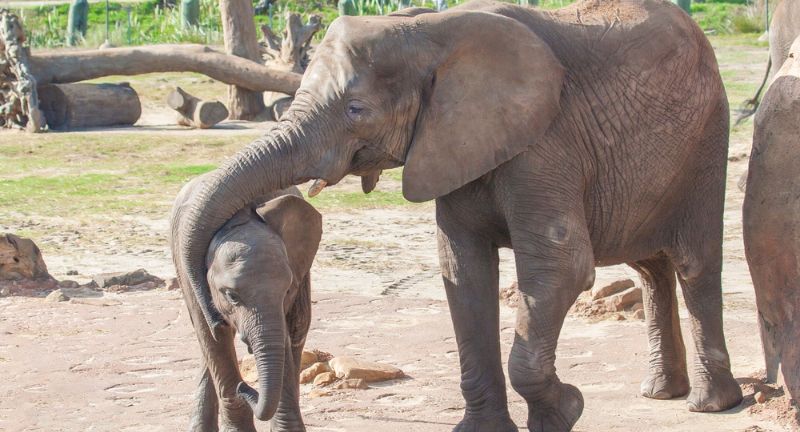
Shutterstock
Elephant mothers are extremely devoted and protective of their calves. They ensure the young ones are well-fed and safe, often with the help of other females in the group. This communal care system strengthens social bonds and increases the survival rate of calves. The dedication and love of elephant mothers are truly inspiring.
Lifespan and Longevity
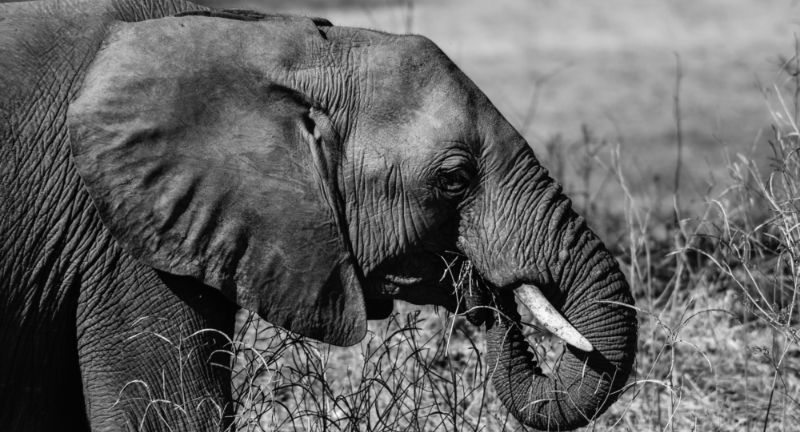
Shutterstock
Elephants can live up to 70 years in the wild, making them one of the longest-living land animals. Their longevity allows them to develop deep social relationships and accumulate vast knowledge. Older elephants, especially matriarchs, play a crucial role in guiding and protecting the herd. Their long lives contribute to the stability and continuity of elephant societies.
Cultural Importance
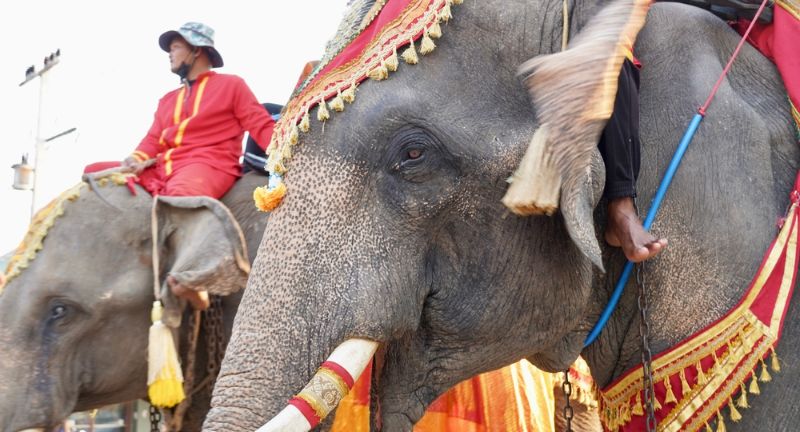
Shutterstock
Elephants hold significant cultural and religious importance in many societies, symbolizing strength, wisdom, and good fortune. They are featured in various cultures’ myths, folklore, and religious practices. In places like India and Thailand, elephants are revered and play central roles in festivals and ceremonies. Their cultural impact underscores their importance beyond just the natural world.
Herbivorous Diet
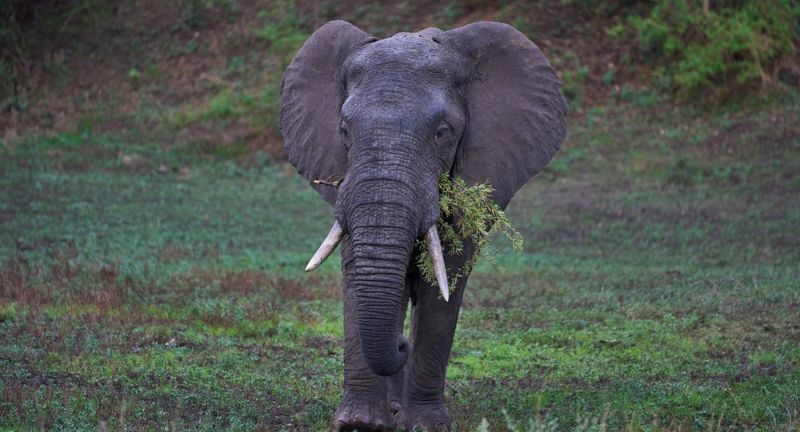
Shutterstock
Elephants are herbivores, consuming large quantities of vegetation daily. Their diet includes grass, leaves, fruits, and bark, making them crucial for the health of their habitats. By feeding, they help shape the landscape and promote biodiversity. Their foraging behavior ensures the spread of seeds and the maintenance of plant diversity.
Keystone Species
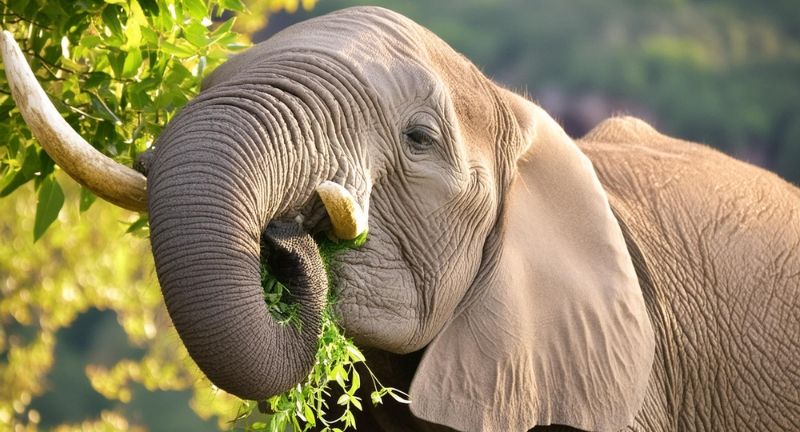
Shutterstock
Elephants play a crucial role in their ecosystems. They help maintain the balance by creating water holes, spreading seeds, and opening up forested areas. Their actions support various other species, making them a keystone species. Protecting elephants ensures the health and stability of entire ecosystems.
Adorable Calves

Shutterstock
Baby elephants are incredibly cute and playful. They learn social and survival skills through play and mimicry. Calves are curious and often get into adorable mischief under the watchful eyes of their mothers and aunts. Their playful antics bring joy and highlight the lighter side of elephant life.
Unique Personalities
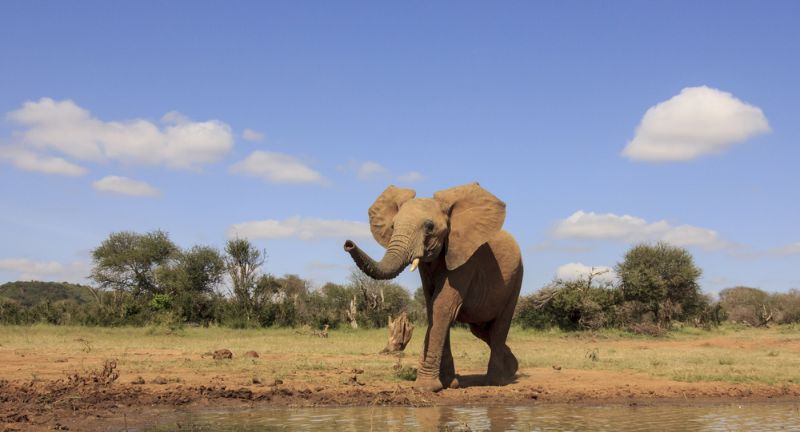
Shutterstock
Each elephant has a distinct personality, much like humans. Some are shy, while others are more outgoing or playful. These individual differences make each elephant unique and endearing. Observing their interactions reveals a wide range of behaviors and traits.
Tusks and Their Uses
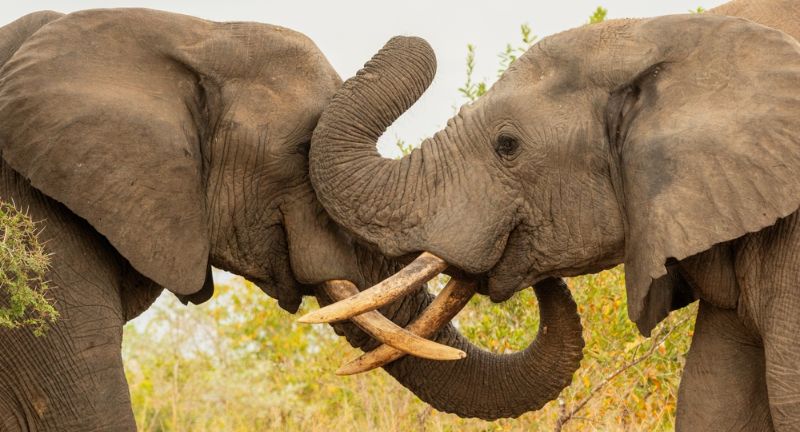
Shutterstock
Elephant tusks, which are elongated incisor teeth, are used for digging, stripping bark from trees, and as a defense mechanism. They also play a role in social interactions and establishing dominance. Tusks are valuable tools for survival, helping elephants access food and water. Their impressive size and beauty add to the majesty of these animals.
Complex Social Structure
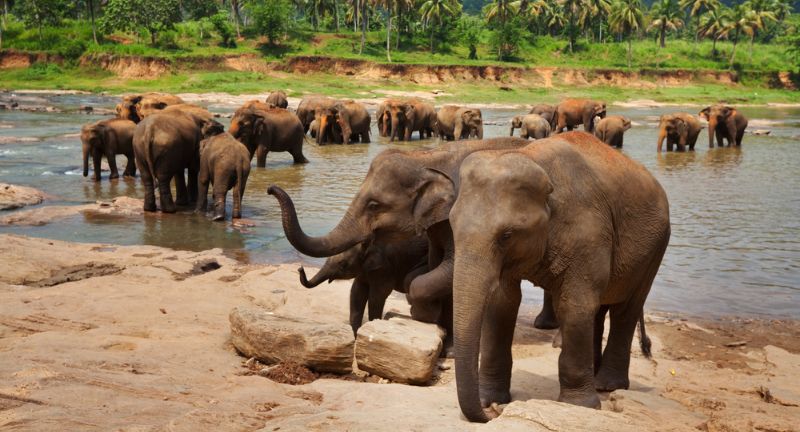
Shutterstock
Elephant herds have a complex social structure, with roles and hierarchies that ensure the group’s stability and safety. The matriarch leads the herd, making crucial decisions and guiding them to resources. Social bonds within the herd are strong, with individuals supporting and caring for each other. This structure is vital for their survival in the wild.
Love for Mud
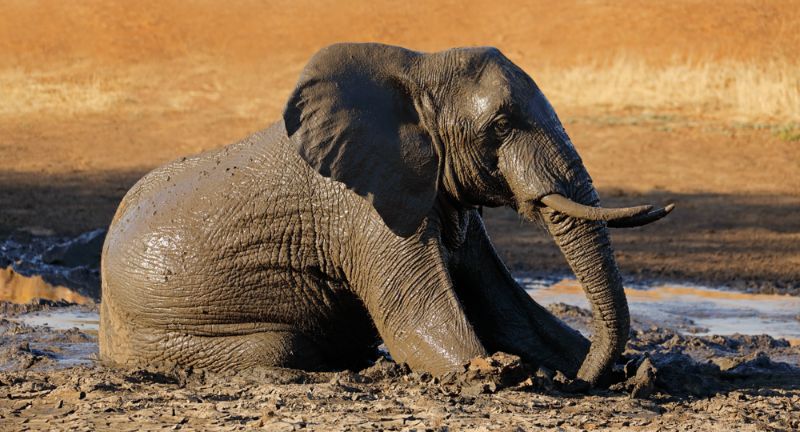
Shutterstock
Elephants love to roll in the mud. This behavior helps them cool down, protect their skin from the sun, and eliminate parasites. Mud baths are a social activity, with herds often gathering at mud wallows to play and interact. Watching elephants enjoy a mud bath is a delightful sight, showcasing their playful and practical side.
Unique Foot Structure
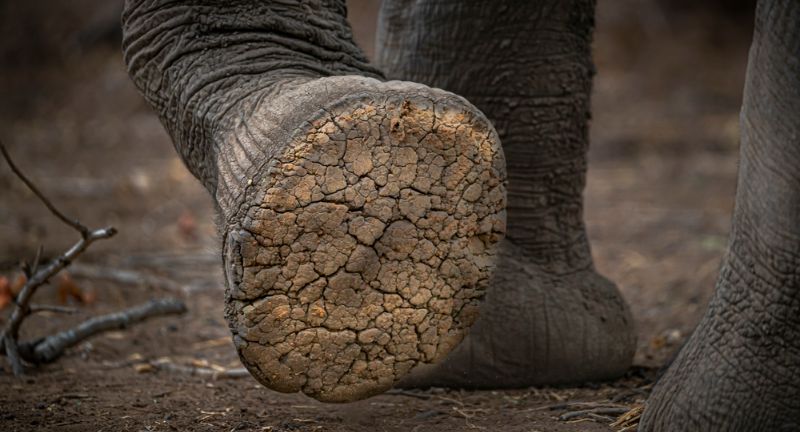
Shutterstock
Elephants have a unique foot structure with a fatty pad that acts as a shock absorber, allowing them to move silently despite their size. This adaptation helps them traverse various terrains without injury. Their feet also help detect vibrations through the ground, aiding in communication and navigation. The design of their feet is a marvel of nature’s engineering.
Amazing Sense of Smell
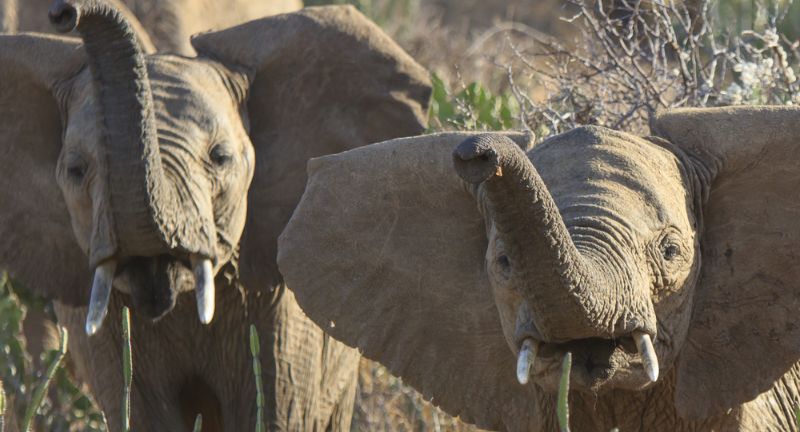
Shutterstock
Elephants have an extraordinary sense of smell, which they use to find food and water, and to communicate with other elephants. Their olfactory abilities are among the best in the animal kingdom. They can detect water sources miles away and identify individual scents in a complex environment. This keen sense of smell is crucial for their survival.
Playful Nature
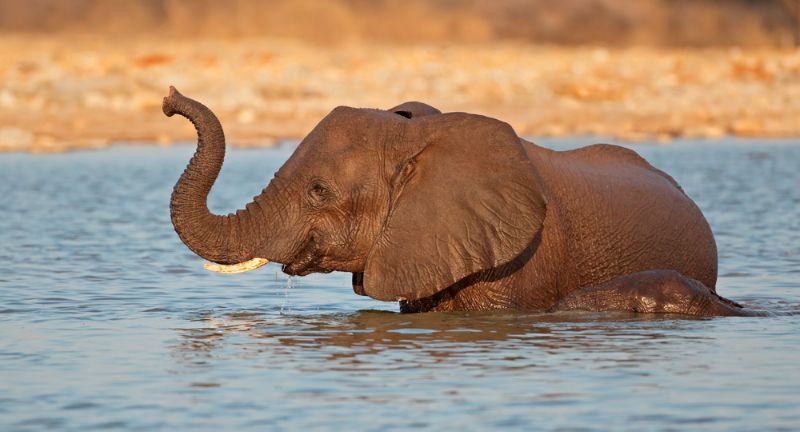
Shutterstock
Elephants are known for their playful behavior. They often engage in games and activities that strengthen social bonds and improve physical skills. Play is especially important for young elephants, helping them learn and grow. Watching elephants play is a joyous experience, revealing their lighthearted and curious side.
Human-like Behavior
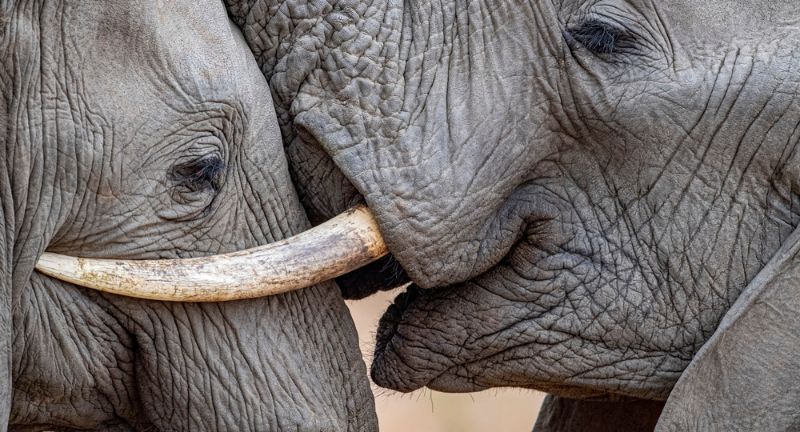
Shutterstock
Elephants display behaviors that are remarkably similar to humans, such as altruism, cooperation, and even laughter. They help each other in distress, work together to achieve common goals, and show joy and amusement. Their social interactions are complex and nuanced, reflecting a deep understanding of each other’s needs. This human-like behavior makes them relatable and endearing.
Conservation Icons
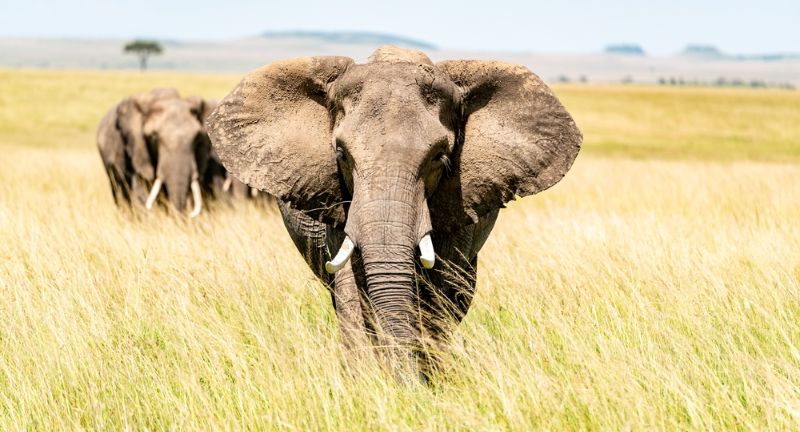
Shutterstock
Elephants are symbols of conservation efforts worldwide. Protecting them ensures the survival of numerous other species and the health of entire ecosystems. They draw attention to the importance of preserving wildlife and habitats. Their majestic presence inspires and galvanizes global conservation initiatives, making them true icons of the natural world.
Conclusion
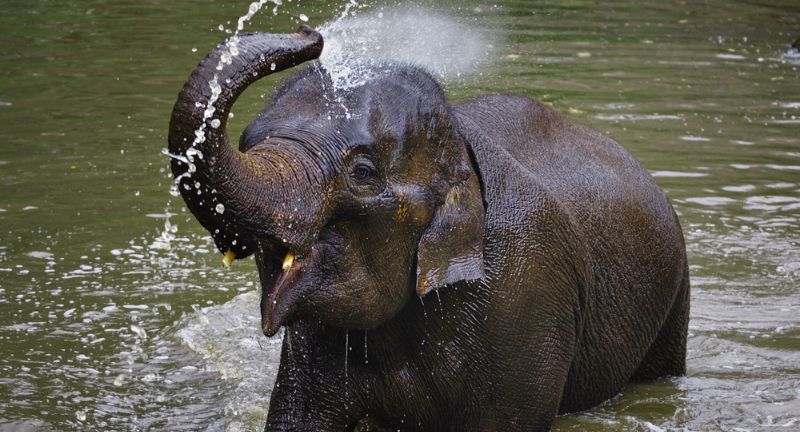
Shutterstock
Elephants truly are extraordinary creatures, embodying intelligence, empathy, and strength. Their unique behaviors and deep emotional lives remind us of the complexity and beauty of the animal kingdom. As we continue to learn more about them, our appreciation and love for these majestic giants only grow. By understanding and protecting elephants, we ensure that future generations can experience the wonder they bring to our world. Let us celebrate and cherish elephants, advocating for their conservation and honoring their place in nature.
More Amazing Animals+
-


24 Animals That Have The Strangest Defense Mechanisms
-


Wasps Are Not So Bad, Here’s Why
-


Cranes Are More Interesting Then You May Think, Here Is…
-


Vitakraft’s Squeezable, Hand-Fed Snacks Named Best Cat Treat of 2022
-


30 Most Interesting Mutualistic Relationships In Nature
-


Humpback whale breaching in Newfoundland, Canada
-


30 Weirdest Shark Species In The World
-


20 Amazing Facts About Alpacas and Llamas
-


Danish Royal Life Guards escort duck family to Copenhagen harbor
-


Triple otter on the rocks
-
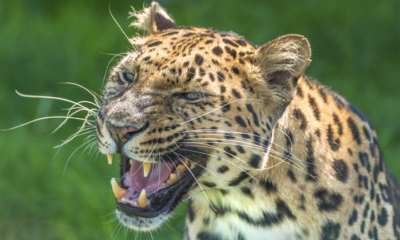

30 Deadliest Animals In South America
-


Goats Ushered Across a Road to Aid in California Fire…
